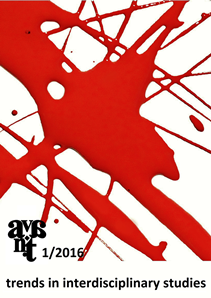From Research on the Musical “Trans-avant-garde”: A Contribution to the Discussion on the Terminology Concerning the Historiography of 20th Century Polish Music
From Research on the Musical “Trans-avant-garde”: A Contribution to the Discussion on the Terminology Concerning the Historiography of 20th Century Polish Music
Author(s): Monika KarwaszewskaSubject(s): Music
Published by: Ośrodek Badań Filozoficznych
Keywords: Italian transavantgarde; neo-expressionism in music; Polish music of the 20th and 21st century; postmodernism
Summary/Abstract: The research article discusses the concept of “the trans-avant-garde” (a term coined by the Italian art critic Achille Bonito Oliva to describe certain phenomena in visual arts, especially painting, which have appeared since the end of the 1970s) and attempts to adapt it for a discussion of twentieth century Polish music. The trans-avant-garde (Italian la transavanguardia) is an Italian form of expressionism in art (neo-expressionism), originating as a rejection of modernism, formalism, innovation, originality, and stylistic coherence, which began to treat tradition in a new way, extensively referring to 16th century mannerisms, ambiguity, stylistic pluralism and polysemy. While, on the one hand, trans-avant-garde artists are fully aware of the crisis of the avantgarde experiment, on the other, they aim to create content-packed works of deeply expressive and romantic character. The trans-avant-garde is widely considered to be an earlystage of postmodernism, or simply its synonym. There is a difference, though, between the trans-avant-garde and the postmodern. Oliva speaks of a journey from America to Europe and back. My article discusses these differences, systematizes the most important stylistic aspects and aesthetic ideas, and applies these observations to the study of music— a discipline Oliva did not take into consideration. A key issue in the description of the trans-avant-garde in Polish music is analysis of the trends that precede it, are synchronous with it, and follow it in history. It is also important to trace borrowings and differences along this time axis. In order to offer an insight of this kind, I first present the different concepts of “modernity” and “postmodernity” that have appeared in music (and art) of the twentieth century, and I then juxtapose those with the Italian original idea of la transavanguardia.
Journal: AVANT. Pismo Awangardy Filozoficzno-Naukowej
- Issue Year: 2016
- Issue No: 1
- Page Range: 75-88
- Page Count: 14
- Language: English

